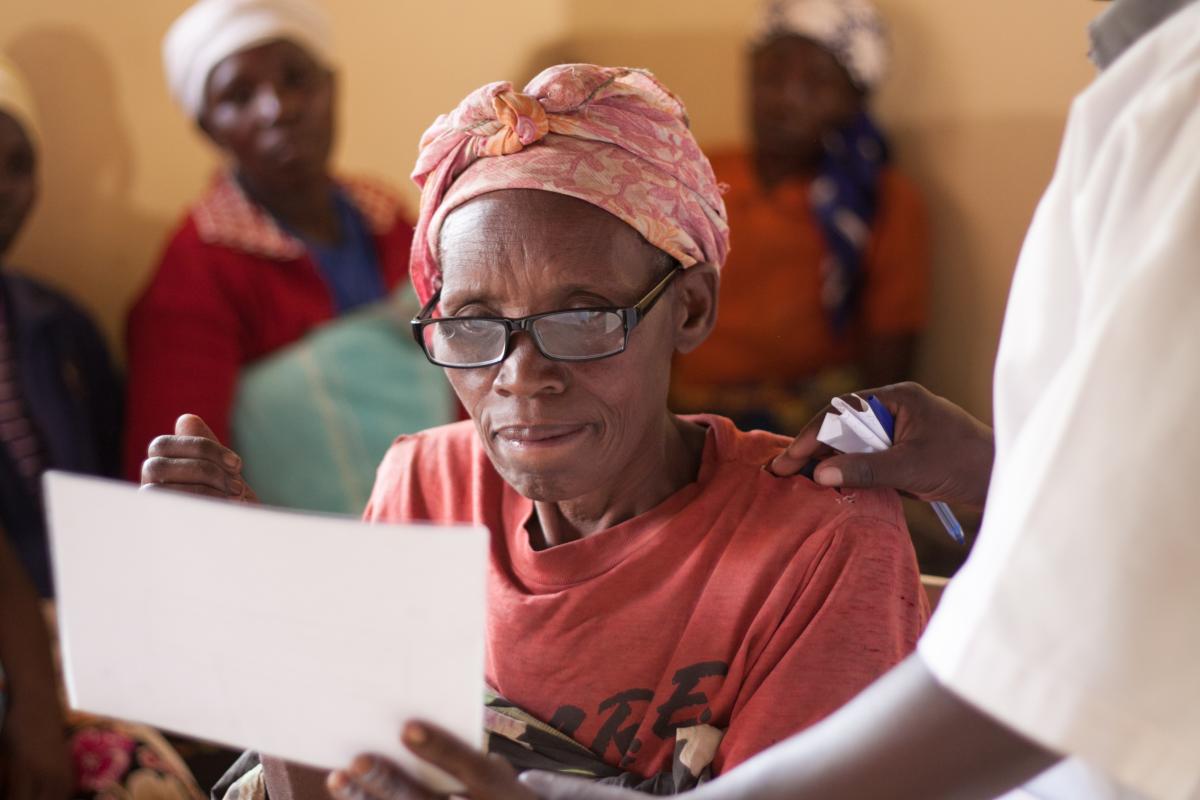Join a powerful, unprecedented alliance for better eye health for all.
Join IAPB-
Choose an alternate language here
For Africa Day, Abdallah Uwihoreye, Rwanda Country Director, Vision for a Nation Foundation talks about the difference their work has made in Rwanda.

I started to struggle with my sight when I was just 12 years old. Basic everyday tasks and schoolwork suddenly became difficult. Fortunately, I grew up in a family with the means to purchase a pair of glasses and close enough to a major city to seek the help I needed.
Many people in Africa aren’t so lucky. Over 600 million people in sub-Saharan Africa live in rural areas that largely lack eye care provision. This must change and Rwanda – my home country – is a shining example of how change can be achieved.
There are nearly 12 million people in Rwanda. Most of the population – around 85% – live in rural areas, far removed from the specialist health care available in the nation’s capital Kigali. Until recently, people living outside Kigali effectively had no access to eye care. Vision for a Nation Foundation – the organisation I lead in Rwanda – has been working with the Ministry of Health to address this.
Since 2012, we have successfully built a sustainable primary eye care service, accessible to all Rwandans. The core innovation of our work is a three-day training curriculum developed by Dr Ciku Mathenge – a variation of which is being launched by WHO Afro. We have trained over 2,500 nurses who are providing front-line eye care at all 502-local health centres. The service is fully integrated into Rwanda’s health system and generates revenue through the sale of glasses RWF 1,000 / $1.50 (the poorest receive them for free), which will be used to sustain the service.
The reach of the service is being extended through a nationwide outreach campaign – supported by USAID – to all 15,000 villages nationwide. This is enabling people to access eye care close to their homes, schools and places of work. The outreach combined with the permanent health centre-based service has helped over 1.5 million people to receive screenings, and over 1 million people have been provided with treatment (medication or glasses) or referred for specialist care.
Africa’s upward trajectory can be boosted by helping more people to access affordable and appropriate eye care. Rwanda demonstrates that it is possible. Now others must follow.
Liked it? Today is Africa Day and we have loads of posts for you. Here are some: